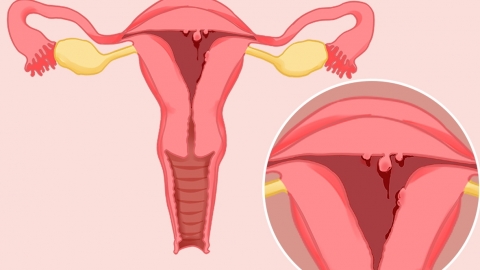What are endometrial adhesions?
Normally, endometrial adhesion may be caused by poor healing after endometrial trauma, declining endometrial repair capacity due to aging, infection after intrauterine procedures, endometritis, uterine tuberculosis, and other factors. If discomfort symptoms occur, it is recommended to seek timely diagnosis and treatment at a regular hospital. Detailed explanations are as follows:
1. Poor Healing of Endometrial Trauma
Procedures such as induced abortion and curettage may cause trauma to the endometrium. If the healing process of the endometrial tissue is abnormal after trauma, the adjacent endometrial surfaces may easily adhere. It is important to rest and avoid fatigue after such procedures.
2. Declining Endometrial Repair Capacity Due to Aging
With aging, women's endometrial regeneration and repair capacity gradually weaken. Once the endometrium is injured, self-repair becomes more difficult, making adhesion more likely. Daily care should focus on protecting uterine health and avoiding unnecessary intrauterine procedures.
3. Infection After Intrauterine Procedures
After intrauterine procedures such as hysteroscopy and intrauterine device placement, if proper post-procedural care is not taken and infection occurs, the inflammation may irritate the endometrium, causing adhesion. Symptoms may include fever and abnormal uterine discharge. Strictly follow medical advice for post-procedural care, maintain external genital hygiene, and take anti-infective medications as prescribed, such as amoxicillin and clavulanate potassium tablets, cefuroxime axetil tablets, and aspirin tablets.

4. Endometritis
Endometritis is caused by infection with pathogens such as bacteria. The inflammation damages the endometrial tissue, causing congestion and edema. Adhesions may easily form during the healing process, possibly accompanied by lower abdominal pain and increased vaginal discharge. Antibiotics such as cefixime capsules, metronidazole tablets, and clindamycin hydrochloride capsules should be used under a doctor's guidance.
5. Uterine Tuberculosis
Uterine tuberculosis is caused by infection with Mycobacterium tuberculosis. It damages the endometrial structure, causing endometrial fibrosis and subsequent adhesion. Symptoms often include reduced menstrual flow, amenorrhea, and low-grade fever. Antituberculosis treatment under medical supervision is required, including medications such as isoniazid tablets, rifampicin capsules, and pyrazinamide tablets.
In daily life, attention should be paid to sexual hygiene to avoid unclean sexual activity; effective contraception should be practiced to reduce intrauterine procedures such as induced abortion; regular gynecological examinations should be conducted to detect and treat gynecological inflammation promptly.





